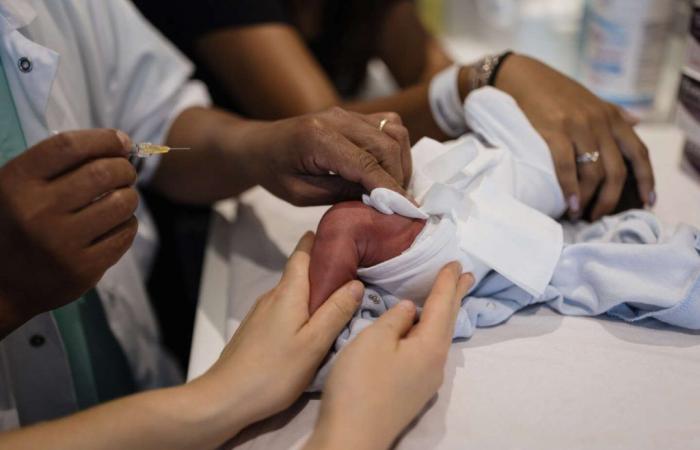After Beyfortus in 2023, a new product will strengthen the arsenal against bronchiolitis. The High Authority for Health (HAS) recommends, in an opinion published Thursday June 13, the use of Pfizer’s Abrysvo vaccine against the respiratory syncytial virus (RSV), responsible for three quarters of cases of bronchiolitis, this obstruction of the bronchioles, narrowest branches of the respiratory system – a disease especially dangerous for infants.
An alternative to nirsevimab (marketed under the name Beyfortus) whose mechanism is different, since it does not involve directly injecting antibodies into newborns, as is the case with Beyfortus, but rather vaccinating the mother in the eighth month of pregnancy, so that the latter produces antibodies, which she will transmit to her child through the placenta, thus protecting him during his first months of life.
The members of the HAS technical committee on vaccinations (CTV) relied on the vaccine effectiveness data transmitted by the laboratory to evaluate the individual and collective benefits of the product: an 81.8% reduction in severe RSV infections. and a 67.7% reduction in hospitalizations until the child is 3 months old. A major challenge in the case of bronchiolitis, which infects 30% of children under 2 years old each year. In the event of a strong epidemic, pediatric services, in structural crisis for several years, can quickly find themselves saturated, leading to transfers of infants to other departments, as was the case recently during the winters of 2022-2023 and 2019. -2020.
Reinforced surveillance
French experts, however, were more cautious than the European Medicines Agency, which granted marketing authorization to Abrysvo in July 2023. They advise pregnant women to be vaccinated between their thirty-second and thirties -sixth week of amenorrhea, that is to say in the eighth month of pregnancy, while the European agency gave the green light from the sixth month of pregnancy.
A caution which can be explained by an unfortunate precedent. Two years ago, the GSK laboratory had to abandon clinical trials of an RSV vaccine also targeting pregnant women, considered to be the twin of that of Pfizer. For what ? A greater number of premature births and therefore deaths were observed in children born to vaccinated mothers than in the group who received a placebo. Results sufficient to disqualify the product, without knowing precisely the causes.
You have 58.88% of this article left to read. The rest is reserved for subscribers.







